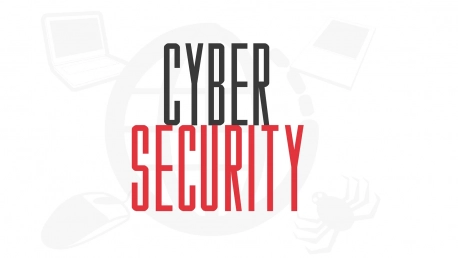In the digital age, as cyber-attacks become more sophisticated and frequent, law firms are prime targets due to the sensitive data they handle. The legal sector must take proactive steps to safeguard their client’s information and their firm’s reputation. In this light, Access Legal’s ‘IT Clinic’ webinar provided invaluable insights into enhancing cybersecurity through strategic partnerships with IT providers. The collaborative insights from Access Managed Services and LCF Law experts during this webinar underscored a multifaceted approach that extends beyond mere service subscription to active engagement in developing a robust cybersecurity posture.
Understanding the Shared Responsibility for Cyber Security
Cybersecurity is not a responsibility that rests solely on the shoulders of the IT provider; it is a partnership where law firms actively participate. This shared responsibility means that both parties must work in concert to create a secure digital environment.Law firms must understand that they play a significant role in cyber defense. Regular staff training is crucial, ensuring that teams are aware of how their actions can impact the firm’s security. Creating a culture that prioritizes security awareness can reduce the risk of breaches caused by human error or negligence. Simultaneously, IT providers can support these efforts by providing the tools and training resources necessary to foster an environment where security is part of the everyday workflow.Moreover, law firms should engage their IT partners in discussions about the technologies and policies that will best protect the firm. Collaborating on the implementation of these measures ensures that the infrastructure is not only robust but also tailored to the unique needs of the legal industry.
Selecting the Right IT Provider for Robust Cyber Defense
Choosing the right IT provider is a critical decision for law firms. An ideal provider is one that not only understands the vulnerabilities unique to the legal sector but can also offer specialized services to address these risks.An effective IT provider should offer tailored cloud solutions that prioritize cyber defense, such as encryption and proactive network monitoring. Critical considerations include vulnerability scanning and penetration testing capabilities, supported by engineers with advanced skills in threat detection and mitigation. Firms should seek providers that employ tier-three Security Operations Center (SOC) engineers, who are experts in identifying and responding to sophisticated threats.These high-level services ensure that law firms are equipped with the necessary defenses to protect against evolving cyber risks. When selecting an IT provider, it is imperative for law firms to verify these credentials and ensure that the chosen provider can deliver on these critical security requirements.
Incident Response: Being Prepared for the Inevitable
No cyber defense system is impervious, and as such, having a comprehensive incident response strategy is indispensable. The webinar highlighted the concerning fact – a significant number of businesses lack a clearly defined plan to manage cyber incidents.A proactive incident response strategy should outline the purpose, scope, potential threats, roles, and protocols for reporting and communication. Including IT providers in the early stages of strategy development is crucial, ensuring a cohesive response when an incident occurs. The IT provider’s ability to react quickly and efficiently can help mitigate the damage from cyber-attacks, making them an integral part of the response plan.Moreover, regular drills and simulations can further prepare both the law firm’s staff and the IT provider for a real-world incident. These exercises help refine the response plan, ensuring it is effective and can be acted upon swiftly to minimize any potential damage.
Utilizing Advanced Security Measures and Compliance
Moving beyond foundational security measures like antivirus software and firewalls, law firms must employ advanced tools that enable a more proactive security stance. Microsoft 365, for instance, offers comprehensive data correlation capabilities, while Security Information and Event Management (SIEM) systems allow for ongoing monitoring of security events.The experts emphasized the importance of achieving Cyber Essentials certification – a government-backed cyber protection scheme that instills confidence among stakeholders and meets evolving insurer requirements. This certification not only validates a firm’s commitment to cybersecurity but also helps in aligning with industry best practices.Further advised is the consideration of Cyber Essentials Plus, which includes an audit process to provide a higher level of assurance of the firm’s cyber defenses. Such certifications and advanced security measures elevate a law firm’s approach to securing sensitive data and maintaining client trust.
Cultivating a Vigilant Firm Culture and Partnered Responsibility
In today’s digital era, law firms have become hotspots for cyber threats due to the confidential data they possess. To combat these evolving threats, the legal industry is recognizing the importance of proactive defense strategies to protect client information and their own reputation. Access Legal’s ‘IT Clinic’ webinar shed light on the importance of strengthening cybersecurity through alliances with IT service providers. Notably, experts from Access Managed Services and LCF Law highlighted that a successful cybersecurity strategy involves more than just subscribing to services. It requires active participation in shaping a comprehensive defense plan. The webinar emphasized a collaborative approach that integrates best practices and innovative solutions to bolster the cyber resilience of law firms. By engaging with IT specialists, legal professionals can build a defense system that not only addresses current threats but also prepares for future vulnerabilities. This commitment to cybersecurity is not only vital to safeguard client data but also critical to maintaining the trust that is the foundation of the legal profession.









